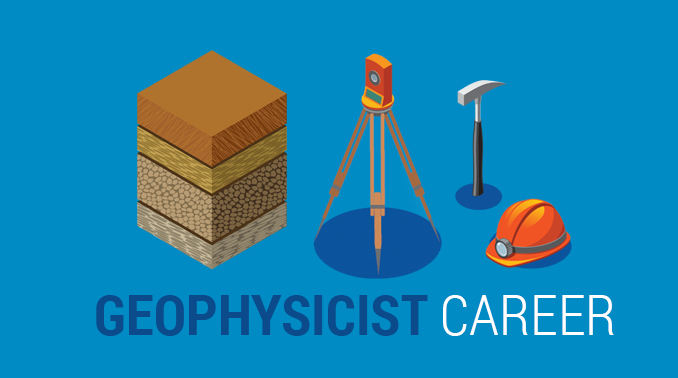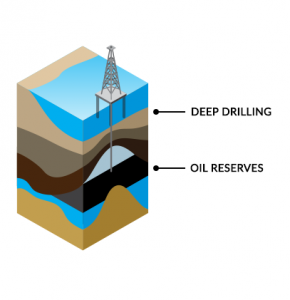All Categories
Featured
Table of Contents
Careers In Geology And Geophysics in Waikiki Oz 2023
This work is significantly contracted out, so consultancies provide another source of employment. Consultancy companies differ in size, from very small companies to large multinationals. Some consultancies are quite specialised in utilizing particular geophysical strategies or working in specific places, while others offer a more varied series of services to their clients.
The extraction of gas from garbage dump sites is another location of work and this might grow in the future. Exploration companies might undertake work for building and construction companies, public utility, mining business and environmental companies, so geophysicists might be used in any of these settings. Other employers consist of: geological surveysgovernment bodies and agenciesuniversities and research institutes.


Vacancies might be noted in the oil and gas sector press. Recruitment is affected by oil price changes and the level of competitors for positions differs depending upon this. Careers Days, which cover the complete variety of geoscience professions and are normally attended by a variety of key industry employers, are run by The Geological Society.
What Is Geophysics? in Glendalough WA 2021
Some of the large oil and gas companies provide a complete two-year structured training program across the breadth of geophysics, including the opportunity to experience operate in numerous teams before specialising in one area. Your training might consist of deal with: existing wellsmagnetic and gravitational prospective field information analysisresearchrock analysis. Nevertheless, it's more normal for your preliminary training to be provided on the job.

There might be a probationary duration throughout which you work together with an experienced coworker. Competency-based appraisals happen routinely in the majority of companies. In smaller sized firms, and for scholastic posts, there is not likely to be any official training - you'll be expected to begin work straightaway and select up skills as you go along.
If you work for a smaller company, you may discover that you need to take duty for organizing and funding your own advancement and training. If you have a geology degree, subscription of The Geological Society can be beneficial for networking and for maintaining to date with the industry.
Working As A Geophysicist And Oceanographer In Canada in Cardup WA 2022
You might likewise discover it beneficial to join the PESGB (The Petroleum Exploration Society of Great Britain, which has a geophysics unique interest group. After a probationary duration, and once you've gained some experience, you could progress to senior geophysicist, then team leader and after that into a senior function in management.
The ease of motion between roles depends upon the business structure. Research study at Masters or Ph, D level in a subject associated to geophysics or geosciences may aid with your career advancement and development. The work market within the oil and gas industry is very based on cost and this may impact your opportunities for profession progression.
Not all jobs are dependent on the oil and gas industries. For experienced geophysicists, freelance consultancy uses a good path for profession advancement. You can also specialise in a particular area of geophysics. As a geophysicist, you're likely to have a number of tasks throughout your working life. International movement is essential for handling peaks and troughs in various countries at various times.
How To Become A Geophysicist in Manning WA 2021
From geophysics, it's possible to focus on seismology (completing additional training to become a seismic interpreter) or to move into related locations such as engineering geology or hazard prediction.
Deciding what to study in college is a hard choice. Even if you know that your field of interest lies in science, what program of study is best for you? If you make the decision to significant in physical and biological sciences and pursue a career as a geophysicist, you're preparing for an interesting and rewarding profession.
However the very first action to accomplishing your objective of becoming a geophysicist is earning a degree. Even for entry-level positions in the field of geoscience, you'll need a bachelor's degree (a geophysicist college degree) from an accredited college or university. Some research positions require candidates to hold master's degrees or perhaps Ph.
Standard And Guidance For Archaeological Geophysical ... in West Perth WA 2021
Doctoral degrees are especially essential if you plan to teach at a four-year institution. Geophysicists use physics concepts and methods to study the gravitational, magnetic, and electric fields of the earth. This furthers researchers' understanding of both the planet's interior core and its surface area. Geophysicists must be able to: examine rocks, photographs, and other pieces of information perform research both in the field and in laboratories create maps and charts of their findings compose reports To achieve all this, students require a specialized education for geophysicist careers.
As stated above, you'll require a bachelor's degree in geoscience or a related discipline, such as a physical science or a life sciences, to land an entry-level task. Trainees can also prepare by majoring in subjects like: Biology Chemistry Computer system science Engineering Mathematics Physics The above geophysicist majors provide a more generalized method to a single clinical discipline, but many programs need trainees to take one or more geology course.
Table of Contents
Latest Posts
What Is Geophysics And What Do Geophysicists Do? in Butler Western Australia 2022
Geophysical Survey - Archaeological Research in Lockridge WA 2020
Geophysical Investigations in Kelmscott Western Australia 2023
More
Latest Posts
What Is Geophysics And What Do Geophysicists Do? in Butler Western Australia 2022
Geophysical Survey - Archaeological Research in Lockridge WA 2020
Geophysical Investigations in Kelmscott Western Australia 2023